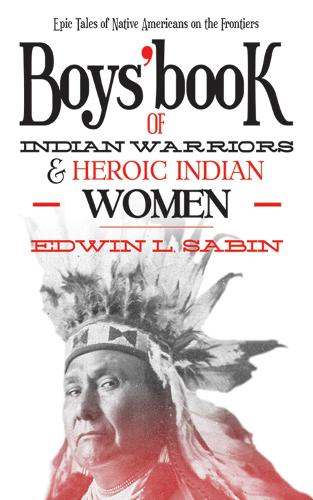
Boys' Book of Indian Warriors and Heroic Indian Women: Epic Tales of Native Americans on the Frontiers
(Paperback)
Publishing Details
Boys' Book of Indian Warriors and Heroic Indian Women: Epic Tales of Native Americans on the Frontiers
By (Author) Edwin L. Sabin
Skyhorse Publishing
Skyhorse Publishing
7th March 2013
United States
Classifications
General
Non Fiction
Ancient warfare
Early modern warfare (including gunpowder warfare)
Modern warfare
Medieval warfare (predating gunpowder warfare)
973.0497
Physical Properties
Paperback
352
Width 152mm, Height 229mm, Spine 25mm
463g
Description
There is nothing more inspiring or more tragic than the bloody and brave history of Native American warriors and the heroic deeds of the women who supported them. Fighting against incredible odds, hopelessly outnumbered and outgunned, and subjected to deadly diseases brought by hostile invaders, the Native Americans fought on almost to the last man, woman, and child. This book, put together by the late Edwin Sabin, gives a thorough yet readable account of the awesome feats of the great warrior leaders of the people that occupied and cultivated America thousands of years before the white man stumbled upon it by mistake.
With illustrations of historical figures, Boys' Book of Indian Warriorsbrings the past into the present as you read about the Terror of New England and the Bloody Belt of Pontiac and gaze upon the faces of King Philip the Wampanoag and Pontiac himself. When the Europeans first came to North America, the Native Americans already had their own disparate nations, their own distinct cultures, and their own history. This book fills in the historical narrative of the Native Americans from 1644 to the Battle of the Little Bighorn in 1876 and the death of Sitting Bull in 1890, a history that is often overlooked and marginalized by modern textbooks.
Author Bio
Edwin L. Sabin was born in 1870 in Illinois. He graduated from the University of Iowa and was a newspaper reporter for some time before moving into publishing as an accomplished author specializing in western historical fiction, and he and his wife eventually moved to California to be closer to his subject matter. Sabin enjoyed success in this field for several decades before he was hit hard by the Great Depression. He died, completely destitute, in 1954.
